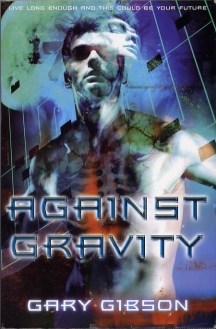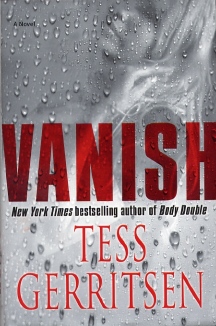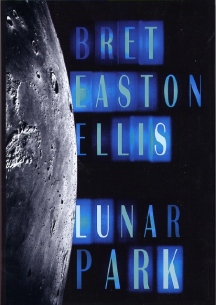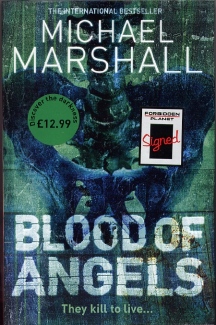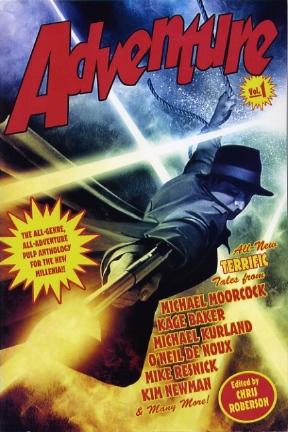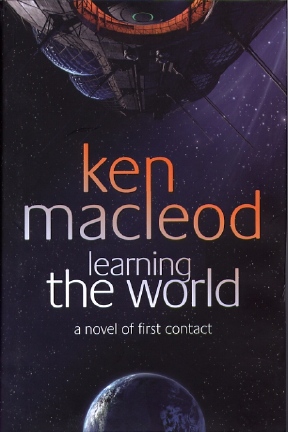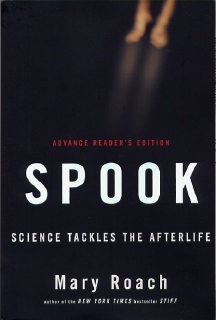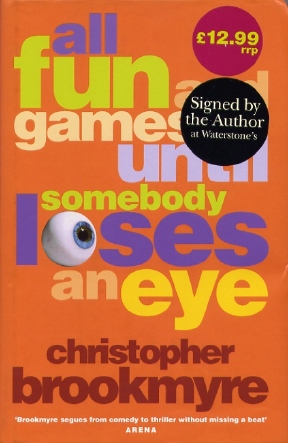|
|
|
This Just In...News from the Agony Column
|
08-18-05: Brett Easton Ellis 'Lunar Park'; Michael Marshal SMITH, I tell you SMITH 'Blood of Angels' |
|||
Bring
On the Horror
But when I couldn't walk a block without hearing about: 'Bright Lights, Big City' and 'Less Than Zero', well, my saintly patience just evaporated. To my mind who could care about the lives of the young and the hip? At the time I was young and profoundly un-hip, dweebing myself away on Usenet, reading a little-known horror writer named Dean R. Koontz between piles of Dick, whom I had heard about mostly from Lem in his infamous 'Science Fiction, A Hopeless Case, with Exceptions' that got him blacklisted from the SFWA in such a manner that it's still on the website. OK. So Michael J., Fox is starring in one movie, I-don't-know-who is starring in another, and what I really like about these books is their propensity to inspire Douglas Winter's wicked, wicked satires, 'Bright Lights, Big Zombie' and 'Less Than Zombie'. So here we are, all still kicking some twenty years later, you who were being born now up and reading, and the rest of us, well, now I'm old and un-hip. Hey, the youth part changed, no effort on my side required. But Brett Easton Ellis is still with us, and with 'Lunar Park' (Alfred A. Knopf ; August 22, 2005 ; $24.95 ; FPT of 125,000) he's brought us a book that well, startlingly, has the hallmarks of the books I used to like back when I decidedly didn't like his stuff even though I'd never read it. The deal here is that Ellis is his own anti-hero, and the wrecked-up yet super-successful writer ends up in the 'burbs. And in a bit of happy justice, this is the kind of suburb where, well, supernatural menaces have a way of externalizing fears and meting out justice. Ellis has gone from too hip to live to...too hip to live. What gives the novel its drive is Ellis' continuation, really, of his original shtick. You know, it's just me, just the facts. Only now just me is living just outside of Stepford, pretty close to Castle Rock, around the corner from Arkham. Bad things will happen to this me, and the me of both yesteryear and right-this-damn-second will get a moment or two to gloat as bad things happen to bad people. I guess that damn redemption is in the mix as well, but I'm not worried about that. Redemption usually follows a bit of the old ultra-violence, MR AMERICAN PSYCHO. From killer to victim, how satisfying is that? Certainly more than zero. |
|||
Ward
Vs The Upright Man Round Three.
Sue me. Go ahead, I'm penniless and quite under-employed. But I'm also a stupid book snob, so this whole name-changing thing rubs me the wrong way, especially in the UK where they don't so far as I know have a Michael Smith or a Marshall Smith or whatever it was that kept him from being able to use what I would surmise is his real name, or at least, the first name he published under. But wait...there's more snobbery ahead! That snobbery being that I rather wish Mr. Marshall / Mr. Smith would get back to the sort of surreal, smirking science fictional stuff he was doing with 'Only Forward' and 'Spares' and 'One of Us'. I like the Ward Hopkins books, but I like the SF stuff more. But look, you know, heres the real deal. Would my readers like to guess who recommended 'Straw Men' to me? No, not Famous Author #1 or Famous Critic #2. Not Favorite Bookstore #1, #2, #3 or #4. Nope. It was me mum. And me sister. Now both of them are pretty much heavy-duty readers like myself, but with less outré tastes. (Probably less maniacally compulsive as well.) Still, both of them recommended 'Straw Men' and 'The Upright Man' -- as it was known in its US paperback incarnation. The experience was rather surreal, really. Here's an obscure British spec-lit writer, and my mother, bless her, is suggesting I'd like this little cheesy paperback. Of course as readers have probably noted already, I got the super-super British version of his latest, with the very nice un-credited cover. I got it at Forbidden Planet, which I visited more than a couple of times during my stay in London...but we're not there yet in the reports, are we. Sorry! Covent Gardens awaits you, and if you want the UK hardcover version signed, go the Forbidden Planet website. You do want to have everything neat and tidy in nice hardcover versions right? Well, youre going to have to go the UK route, and you might as well get them signed. Of course, this does bring to mind the question as to why HarperCollins US is frittering away the potential US HC and TPB sales by going straight to paperback. I know, in the beginning, he wasn't well known. But listen up, HC: if my mother is anticipating these books, you should be publishing them in hardcover. And while I wait for Smith's next surreal Sfnal title, I know that Ward Hopkins V3 will be a sleek, smart imaginative trip into nightmare territory. I like that. Better yet for MMS, my mother likes it. Ka-ching! |
|
08-17-05: Adventure Vol 1; Ken Macleod is 'Learning the World' |
|||
Chris
Roberson's Pulp Extravaganza
Roberson knows his way around what China Miéville calls a "ripping yarn." That's an ADVENTURE story, a story that offers ample plot, exciting turns but doesn't have to stint on characterization, prose quality or any of the other aspects that go into making great literature. Roberson nods in his intro to the Chabon's McSweeney's gigs, 'All Star Zeppelin Stories' edited by Jay Lake and David Moles (one of the entries of which won a Hugo), and Lou Anders' 'Argosy. And yes, all these publications have been down this general road before, all-hail. Roberson does himself proud however, with a nod towards not only the usual genre fiction staples, but also historical fiction, westerns, mysteries -- this book is a lucky-bag of yelling authors. It's also a pretty damn thick lucky-bag, topping off at 391 pages in the proof I have. What more could we ask for from an annual anthology? Well, let's see. New stories from Neal Asher and John Meaney, each set in the universes they've explored so successfully in their novels; 'Lost Time' is set in Meaney's Mu-space, while Asher's 'Acephalous Dreams' is another set in the Polity universe. Hugo winner Mike Resnick brings in the latest adventure of the Right Reverend Honorable Doctor Lucifer Jones in the irresistibly titled 'Island of Annoyed Souls'. (I dont live on an island!) How can you keep yourself from a new historical adventure story by Kage Baker titled 'The Unfortunate Gytt'? You shouldnt! Michael Kurland offers a historical mystery in 'Four Hundred Slaves' and Kim Newman gives Resnick a run for his money in the title department with 'Richard Riddle, Boy Detective in The Case of the French Spy'. I've got to stop here and mention that many of these stories are on the long side, which is to say, Thank You Chris Roberson. The longer the better in my book, with more than a few novelettes and perhaps even a novella. Whatever the case, this is clearly to be placed in your must-buy column early and often. It's the kind of thing that will satisfy a really wide variety of readers, as long as they're game for longish short stories. OK, I'm going to stop here, to hold myself back. There's too much great material to give it all away. Hugo nominee John Picacio does the cover honors and we should he honored to have such a cover, such an annual anthology. This is clearly too much fun. |
|||
Fermi
and First Contact From Our Favorite Scottish Socialist
Good thing you were wrong about the atmosphere, huh? I mean, bummer -- talk about winning the battle and losing the war! But there you go. No, the bombs didn't set the air on fire in some sort of ice-nine effect. But your damnable Fermi Paradox, now that's a real poser. You asked a simple question of probability. The way you worked the math, I think goes something like this. We all know that the universe is well, pretty big. So even if only say, one in a million stars has one or more habitable planets, well, lookit all them stars. There must be bezillions of habitable planets out there, with life in all its magnificent glory springing forth. Snot world, flower world, mud world -- life's rich pageant, eh? So, you HAD TO ASK, why havent we heard from any of these folks, huh? And that's the Fermi Paradox; so much life out there, so little contact from out there. Whats up, you asked. It's not like you could offer up a theorem, like say, we havent heard from them because we smell bad or something. No, you only had to pose the question smart guy, leaving the answer to generations of science fiction writers. What, you told your ancestors to invest in Tor books, or Orion Orbit, knowing that somewhere down line, Ken Macleod would need to make a few quid and by 2005 he'd be releasing 'Learning the World' (Orion Books; August 2005 ; £17.99)? OK, well thanks a bunch, because it's not as if I don't have EVERY OTHER KEN MACLEOD BOOK that I've almost managed to read in the order of publication. (Required for this Fall Revolutions books, IMHO.) So, Stansislaw Lem offered his clever workaround for your #%$^#%*@in' paradox in 'Fiasco', and now it's Macleod's turn. Now from what I can glean, it's a very simple setup. You got your generation starship, heading towards a world upon which they expect to find green slime AT BEST, and NO, not 'The Green Slime' of the wonderfully cheesy Japanese SF-movie fame, not some smart slime, no, we're talking about algae. Little do they know that life awaits them, and it's pretty damn human-seeming. OK, how all this goes to solving your paradox is a bit of a mystery to me, but knowing Ken Macleod, it's a mystery of the mind-#%$^#%*@in' type that pretty much does you in as you close the book. It's really what we live for, SF that has a sort of low-key everyday quality combined with a high-concept backdrop that results in a lower-brain jaw-drop. And it's all your fault, Enrico. I have it on good authority that Alastair Reynolds is having a go at you as well. Don't say you didn't ask for it. Let's just hope that setting-the-atmosphere-on-fire thing was just a flash in the pan, you know, like, a total mistake. We like you to be right, but in that case, we'll be happy to see you're wrong. |
|
08-16-05: Mary Roach 'Spook'; Christopher Brookmyre's Madcap Mayhem. |
|||
Science Tackles the Afterlife
If you make the same mistake I made -- opening up the book, count the next fifteen minutes as history. Roach is back, and she manages set up the same kind of easy conversation with the reader that she did in 'Stiff'. Reading her words, she draws you into her world, then opens up that world to include Kitri Rawat, the director for the "International Centre for Survival (as in survival of the soul) and Reincarnation Researches." Roach starts out her journey into the afterlife asking whether or not we have a soul, and you can be assured that Dr. Rawat, a retired philosophy professor, has some strong ideas about the answers to that question. As she opens up to her subject, she jets back and forth in time, and gets back into that pesky soul-weighing business that was a highlight of 'Stiff'. This time around, she's weighing the soul of a leech -- no, not a politician, but one of those black wriggly things you see in horror movies. She zips back to talk about Franz Joseph Gall, who made an early stab at mapping the brain. While he did find the center of language, his discovery of the center of poetry was perhaps more on the fanciful side. What makes Roach such an engaging writer is that she likes and respects all the people that she talks to. This is not to say that she believes everything that she reports, but she reports with verve on a subject that is naturally exciting. She digs into "the giddy, revolting heyday of ectoplasm" with the same glee that she applies to re-incarnation. What's more, she finds some. She makes phone calls to the dead, and offers us, "the Big Shrug, a statue of which is being erected on the lawn outside my office." She gets under the computer that hangs from the ceiling in the University of Virginia Hospital, waiting to capture a Near Death Experience. Having just skimmed the book, I'm ready to cross over. October can NOT come a minute too soon. |
|||
'All Fun and Games Until Somebody Loses an Eye'
His latest novel with a very clever title takes up the question of boredom. Jane Fleming is forty-six, a grandmother, and pretty much a model citizen. How can you be a grandmother and not be a model citizen? But she's interested in adding to her resume. Cue hacker Lex Richardson. She's hoping to extricate herself from the clutches of her employer, a woman named Bett. Bett has Lex looking for a missing scientist who has developed something very valuable. Alas it proves to be one of those kinds of inventions that are even more valuable if they remain undiscovered. And this is where Jane Fleming's life takes a turn for the 1) interesting and 2) dangerous. Brookmyre has been popping out one meaty thriller after another, and we're almost to the point here in the US where we're caught up with him. Readers who like their Scottish literature foul-mouthed and trending towards large explosions will be well advised to seek out a UK hardcover copy now, before they become incredibly valuable, which I assure you they will when someone twigs to Brookmyre's wit and gets round to making a movie of one of his novels. Of course, you may lose an eye before that happens, which will negatively impact both your book reading and movie viewing experience. How many times were you warned not to run with scissors? |
